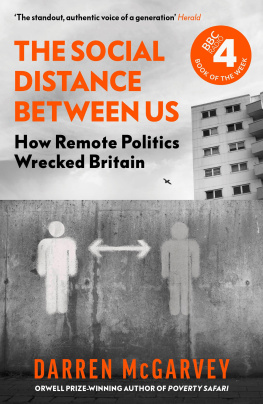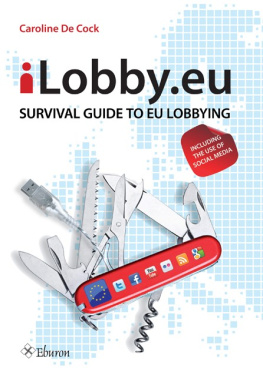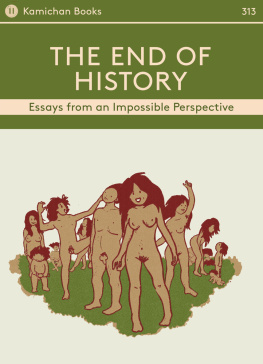Social Media Campaigning in Europe
Studies of election campaigns have shown an increased employment of websites, weblog tools, email, and social media by political campaigners, as well as the use of similar platforms by citizens to find information, communicate about elections or engage more generally in political issues. This comprehensive volume explores the ways in which social media is used on the one hand as a campaigning tool, and on the other, by local citizens. It aims to develop a more holistic and Eurocentric research agenda by capturing both supply and demand practices at the European level. The authors employ both single and multination case studies, furthering debates on how political actors and voters embrace the new information and communication environment, in what ways, and for what purposes. The book offers new perspectives on social media campaigning within European democracies, thereby contributing to a more global and comprehensive understanding of how campaigning is affected, and might be enhanced, by developing an interactive digital strategy.
This book will be of great interest to students of both politics and media studies. It was originally published as a special issue of the Journal of Information Technology & Politics.
Darren G. Lilleker is Associate Professor in Political Communication in the Faculty of Media and Communication at Bournemouth University, UK. His research focuses on the nexus between political campaigns and voter engagement, trust, and self-efficacy as conceptualized in his book Political Communication and Cognition (2014).
Karolina Koc-Michalska is Associate Professor at Audencia Business School and Associated Researcher at CEVIPOF Sciences-Po Paris, France. Her research focuses on the strategies of political actors in the online environment and citizens political engagement, where she employs comparative approach focusing on the U.S. and European countries.
Ralph Negrine is Emeritus Professor of Political Communication in the Department of Journalism Studies at the University of Sheffield, UK. His publications include The Transformation of Political Communication (2008) and The Political Communication Reader (with James Stanyer, 2007).
Rachel Gibson is Professor of Politics at the University of Manchester, UK. Her research focuses on how digital technologies are changing the way in which election campaigns are fought and won. She is interested in comparative research and has a particular focus on developments in the UK, the U.S., Australia, and France.
Thierry Vedel is a CNRS Senior Research Fellow with the Center for Political Research at Sciences-Po Paris, France.
Sylvie Strudel is Professor of the Political Sciences (Professeur des Universits) at Pantheon-Assas University, France, and Associated Researcher at Centre Marc Bloch de Berlin, Germany, and CEVIPOF Sciences-Po Paris, France.
Social Media Campaigning in Europe
Edited by
Darren G. Lilleker, Karolina Koc-Michalska, Ralph Negrine, Rachel Gibson, Thierry Vedel, and Sylvie Strudel
First published 2019
by Routledge
2 Park Square, Milton Park, Abingdon, Oxon, OX14 4RN
and by Routledge
52 Vanderbilt Avenue, New York, NY 10017
Routledge is an imprint of the Taylor & Francis Group, an informa business
2019 Taylor & Francis
All rights reserved. No part of this book may be reprinted or reproduced or utilised in any form or by any electronic, mechanical, or other means, now known or hereafter invented, including photocopying and recording, or in any information storage or retrieval system, without permission in writing from the publishers.
Trademark notice: Product or corporate names may be trademarks or registered trademarks, and are used only for identification and explanation without intent to infringe.
British Library Cataloguing in Publication Data
A catalogue record for this book is available from the British Library
ISBN 13: 978-0-367-18566-4
Typeset in Minion Pro
by RefineCatch Limited, Bungay, Suffolk
Publishers Note
The publisher accepts responsibility for any inconsistencies that may have arisen during the conversion of this book from journal articles to book chapters, namely the possible inclusion of journal terminology.
Disclaimer
Every effort has been made to contact copyright holders for their permission to reprint material in this book. The publishers would be grateful to hear from any copyright holder who is not here acknowledged and will undertake to rectify any errors or omissions in future editions of this book.
Contents
1. Social media campaigning in Europe: Mapping the terrain
Darren G. Lilleker, Karolina Koc-Michalska, Ralph Negrine, Rachel Gibson, Thierry Vedel, and Sylvie Strudel
2. Beer is more efficient than social mediaPolitical parties and strategic communication in Austrian and Swiss national elections
Ulrike Klinger and Uta Russmann
3. The role of gender in online campaigning: Swedish candidates motives and use of social media during the European election 2014
Linn A. C. Sandberg and Patrik hberg
4. From hybrid media system to hybrid-media politicians: Danish politicians and their cross-media presence in the 2015 national election campaign
Mark Blach-rsten, Mads Kmsgaard Eberholst, and Rasmus Burkal
5. Brute force effects of mass media presence and social media activity on electoral outcome
Marko Kovic, Adrian Rauchfleisch, Julia Metag, Christian Caspar, and Julian Szenogrady
6. When David and Goliath campaign online: The effects of digital media use during electoral campaigns on vote for small parties
Carol Galais and Ana Sofa Cardenal
7. Sharing Is Caring! Investigating Viral Posts on Politicians Facebook Pages During the 2014 General Election Campaign in Hungary
Marton Bene
8. Personalization of Politics Between Television and the Internet: Leader Effects in the 2013 Italian Parliamentary Election
Diego Garzia
The chapters in this book were originally published in the Journal of Information Technology & Politics, volume 14, issue 4 (December 2017). When citing this material, please use the original page numbering for each article, as follows:
Chapter 1
Social media campaigning in Europe: Mapping the terrain
Darren G. Lilleker, Karolina Koc-Michalska, Ralph Negrine, Rachel Gibson, Thierry Vedel, and Sylvie Strudel
Journal of Information Technology & Politics, volume 14, issue 4 (December 2017), pp. 293298
Chapter 2
Beer is more efficient than social mediaPolitical parties and strategic communication in Austrian and Swiss national elections
Ulrike Klinger and Uta Russmann
Journal of Information Technology & Politics, volume 14, issue 4 (December 2017), pp. 299313
Chapter 3
The role of gender in online campaigning: Swedish candidates motives and use of social media during the European election 2014
Linn A. C. Sandberg and Patrik hberg
Journal of Information Technology & Politics, volume 14, issue 4 (December 2017), pp. 314333
Chapter 4
From hybrid media system to hybrid-media politicians: Danish politicians and their cross-media presence in the 2015 national election campaign


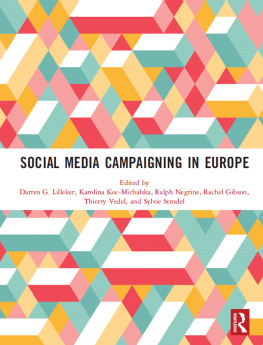
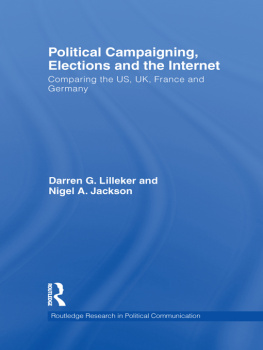


![Darren Shan - Cirque Du Freak [A Living Nightmare]](/uploads/posts/book/510746/thumbs/darren-shan-cirque-du-freak-a-living-nightmare.jpg)

